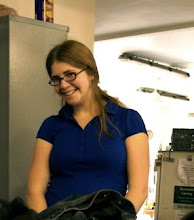In the almost three months since I’ve been living in Jerusalem, the ways I connect to Eretz Yisrael through eating its food have moved beyond junk food and street food, to incorporating my Jewish social justice values in the way I cook and eat in Israel, through a CSA share (community-supported agriculture) and the Tav Chevrati.
When my roommate Sarah first suggested signing up for a CSA, I thought it sounded like a great idea for my health and lifestyle, but did not immediately connect it to my social justice practice. A CSA in Israel works similarly to one in North America, with one crucial difference: in Israel, the growing season never ends! We receive a delivery of organic vegetables every week, year round. My roommates and I signed up with Chubeza, an organic farm located outside of Modi’in, and come home every Wednesday night to a large box of vegetables on our doorstep. Every week my box includes tomatoes and cucumbers (necessary for Israeli salad!), and a variety of other vegetables: eggplant, corn, scallions, winter squash, radishes, beets, sweet potatoes, herbs…

My CSA is a weekly, tangible example of the bounty of Israel, described in Deuteronomy: “For Adonai your God is bringing you into a good land…a land of wheat and barley, of vines, figs, and pomegranates, a land of olive trees and honey; a land where you may eat bread without scarceness, where you will lack nothing…” (Deut. 8:7-9)
Being a part of a CSA in Israel is important to me because it means that I eat locally and sustainably. I can walk into any supermarket here and find many of the same brands that I purchase in the United States, but I know where my vegetables are coming from – they aren’t coming from thousands of miles away, and they are grown on a farm within Israel’s borders. Every day, when I pack lunch and cook dinner, I automatically act out my values regarding the food I put into my body and the ways I spend my money when I am living in Israel.
Of course, even on a student budget, I don’t eat every meal at home. When I go out to dinner, for coffee, or for ice cream, I look for the Tav Chevrati, the social seal, an initiative of the Jerusalem-based non-profit organization Bema’aglei Tzedek, Circles of Justice. The Tav Chevrati, the “Tav” for short, indicates that the food establishment respects the legally-mandated rights of its employees and is accessible to people with disabilities. Workers must receive minimum wage, be paid on time and overtime, and be treated within the minimum of Israeli labor law. The business must grant access and service to people with disabilities. I personally struggle with the idea of rewarding businesses for doing what is required of them legally, yet if the government is not stepping into to enforce the minimum legal requirement, the only reason business owners will uphold these laws is if they have an economic interest in doing so – if they know they will gain customers (including Israeli citizens and short-term and long-term foreign visitors) by having the Tav. It is not about kashrut. The list of businesses with the Tav includes both kosher and non-kosher restaurants. The Tav is about the just treatment of human beings and reaching towards a vision of an ideal Israeli society. The reason I support businesses with the Tav is because I believe in the dignity of each and every person, whether they work in a restaurant as a waiter or a dishwasher, or want to be able to eat in the same restaurants I have access to as an able-bodied person.
Furthermore, this is about power; power that is made up of organized people and organized money. In order for the Tav Chevrati to be successful in creating a more just Israeli society, one that I am proud to participate in and support, many, many people need to intentionally support the establishments that do have the Tav Chevrati, and tell those businesses that they are there because of their commitment to social justice. Eating justly does not need to be contained to my kitchen; it is a practice I can continue when I am out exploring Israel and Jerusalem. It is not something we need to leave in the United States either. If you are coming to Israel, on your own or with a synagogue trip, seek out restaurants with the Tav Chevrati (see the English list here) and encourage your traveling companions to do the same.




No comments:
Post a Comment